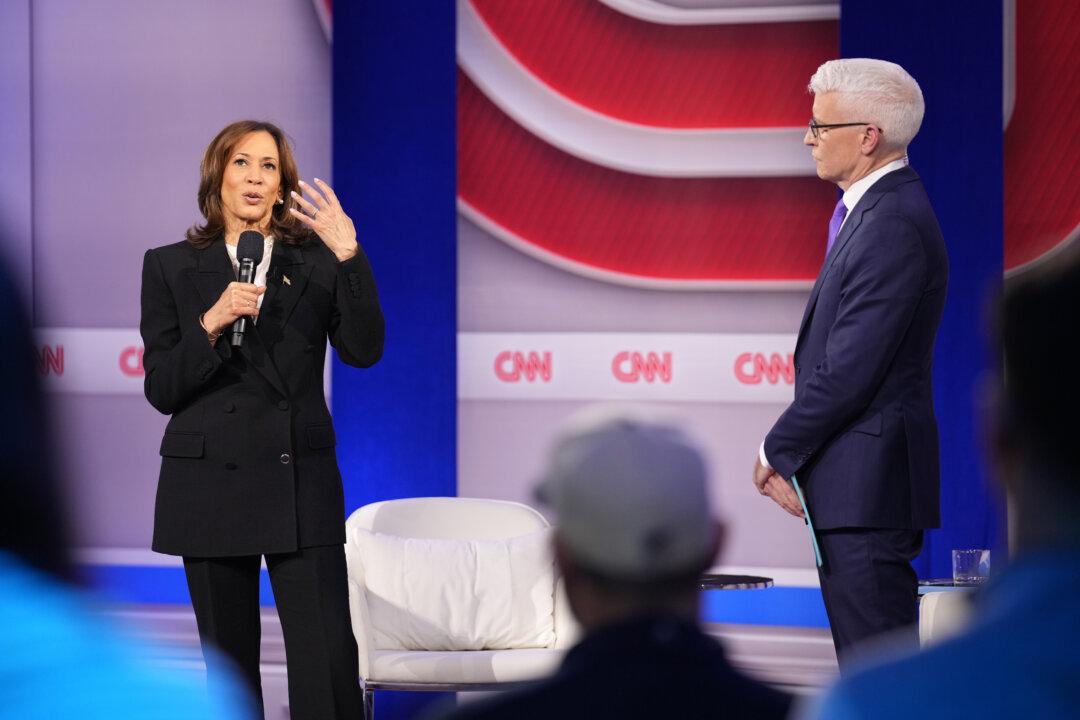Vice President Kamala Harris fielded questions from undecided Pennsylvania voters at a town hall meeting in Delaware County on Oct. 23. The event occurred just 13 days before the Nov. 5 election, as Harris is locked in a tight presidential race with former President Donald Trump.
Just as in an interview with NBC News a day earlier, CNN anchor Anderson Cooper challenged Harris on a number of her positions, including immigration as well as her changed positions on issues such as fracking and Medicare for all.





